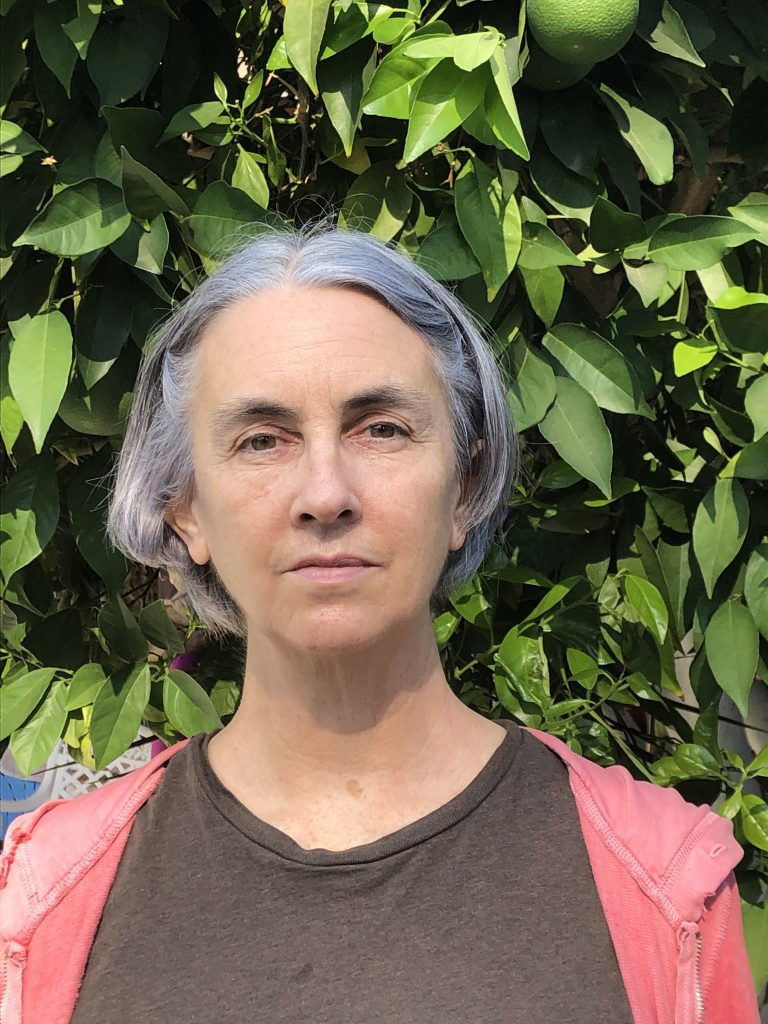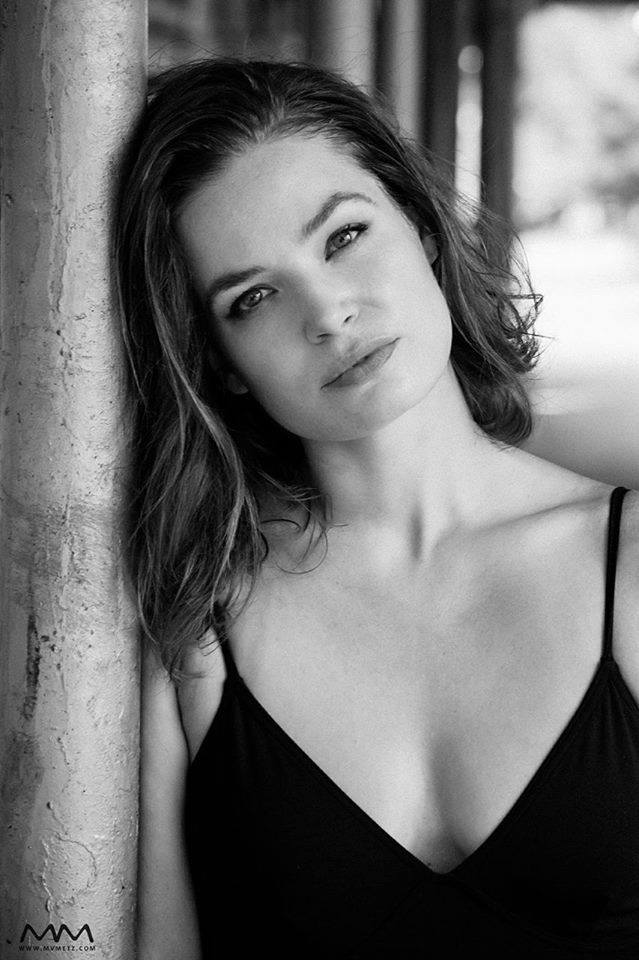
Ilyn Welch 
Nikki Ervice
Coup de Grace by Ilyn Welch
Robby Cordy was a murderer—of animals so far. One method he used was putting a dead kitten in a capped soda-fountain cup—Styrofoam or coated paper, no matter. He’d leave the “prank” on the unsuspecting owner’s stoop. Robby would hide and watch for their reaction upon discovery of their murdered loved one.
This behavior did not come from out of the blue. Teenage Robby Cordy’s home life involved neglectful parents who argued about things tangential to his dad’s Hep C, caused by the stereotypical decades of substance abuse. He had other siblings: one flailing but trying to find the road to personal improvement; one older than Robby who was depressed and damaged;
one who was always in a wheelchair, left to sit alone in his room for hours. Robby was a bully at school and lonely at home.
Vieja lived not quite directly across from the Cordys in a white wooden house, with a simple, pillared porch, set back far from the street, ignored by neighbors.
Ghost was Vieja’s gray cat, a powerful, savvy old soul who evaded Robby’s attempts at capture. Ghost liked curling up on the porch, monitoring movement on the street.
With the bad energy swirling in the neighborhood, Vieja was compelled to control it. On a fluffy decoy feline identical to Ghost, she applied a powdery toxin and strategic gobs of oleander honey, then placed it on her porch under the cloak of dusk, the real Ghost secure inside.
Vieja did not have to wait long.
Emulating the moves of a running back, Robby grasped and tucked the fake cat like an ol’ pigskin, but fumbled when dust puffed into his nose and eyes. Robby slammed the sham cat to the ground and licked his treacly hands.
Days later, Ghost was gobbling his kibble mixed with wet food on the porch. Standing there alongside her cat, Vieja watched the scene unfolding at the Cordy house. Paramedics screeched to a halt, hustling inside. Robby did not exit with them to a hospital, nor did they leave after a “false alarm.” In due time, the coroner showed up. Vieja rocked in her porch chair, stroking Ghost’s fur as he relaxed on her lap, watching the death attendants eventually wheel out the bagged and zipped corpse of Robby Cordy.
—
Ilyn Welch writes horror and mystery. She shares a computer with her family in the currently smoky Inland Empire of Southern California.
Theo by Nikki Ervice
The way my mom told it, Mira and her horse slid apart from each other like an egg yolk from its white. My sister, the yolk, bobbing and intact. Theo, the white, breaking around rocks, falling apart in the churn of the river, coming together again where it spread out into gentle fingers that reached for the bay. It was too late when they reached him, my mother said. She had swooped Mira onto the back of her mare behind her, balanced on the great swell of her rump, and they had chanted “come on, come on” together while they traced the bank. But their prayer did nothing and crows were already gathering hopefully around the black mass of the horse in the sand. Mom jumped on his stomach to expel the water from his lungs while my sister watched and shivered but he didn’t move, except for his tail which snaked lazily in the stream.
“I have some bad news, Sweetie.” This is how she prefaced the telling, after they rode home that night, defeated in the dark. This is what she said before she relayed anything painful. She was the veil between worlds. The vestiges of death passed through her first. She made sure of this because I was the youngest girl, dressed in the softest linens. She fashioned braided rugs and decorative pillows of death: He was a beautiful horse. He was not old, but he was getting old. He would have been old sooner than we thought, and age is more cruel than a swift river. There was nothing we could have done. He must have died quickly, without fear. His eyes were quiet. There was a gumminess to her words, so thick and sludgy with sugar that they stuck in her throat. But all the sweetness made the idea of Theo, sprawled out on the flats alone as night descended, that much worse. I pressed the meat of my palms into my eye sockets as dams.
That night after the fat-bellied wood stove began to cool and we had eaten all the corn cakes with honey, my sister rolled over in her twin bed, and into the two-foot gap between us said that there was something they could have done. They could have crossed the river further down, where the current was weaker, where he wouldn’t have faltered on the hidden boulders. She said that as they were riding away from him, she had seen the bellow of Theo’s ribs moving up and down. As the sun split the clouds and great piles of steam rose up all around his body, she could have sworn she saw his ear twitch.
Mom said that she would ask Philip, our neighbor, if we could use his landing craft to get Theo tomorrow when it was light, as long as the tide hadn’t carried him off in the night. The river was three miles from our cabin, which to my seven-year-old self was a span that fluctuated wildly. Sometimes it was a thousand miles and sometimes it was right next door. That night, with moonlight painted milky-thin over the bay, me and Mira took our mother’s mare, who, in the dark of her stall, was mostly shadow but for the tiny galaxies of her eyes. She let us slip the bridle over her ears and came willingly. Mira sat in front and I latched my arms around her middle. Only once did we become frightened, when a rock on the slope of the beach turned into a hulking bear, then back into a boulder. I had a carrot in one pocket for Theo, if he was well, and a knife in the other, if he was not. I had never had to put anything out of its misery, though I knew in the abstract that you were supposed to slice something vital in the throat. I had never fed a once-dead horse a carrot, but in the moonlight it seemed possible, and a kernel of hope sat beneath my sternum.
We rode for what felt like a very long time along the berm where the sedge grasses tickled our knees. We were a beast with three heads that bobbed in tandem. In that grainy midnight half-world, in which we were normally not allowed, we finally came upon the rise of Theo on the flats. He seemed peaceful and somehow exactly how he should be: sleek and wet like a seal. I held my hand in front of his nostril but there was no warmth. Without speaking we gathered the poison flowers of beach peas, blue and purple, and wove them into his mane and tail. He smelled clean and briny. I left the carrot by his nose and kissed the cold slab of his neck which crawled with sand-fleas, already undertaking the massive work of breaking him down.
In the morning, Mom collected Theo’s body before we were even awake. She did not comment on his adornment. Perhaps the long tentacles of daybreak had picked the flowers from him as delicately as we had placed them. Philip strung him up by his hind legs and butchered him over a tarp on his lawn. Mom wouldn’t let us watch, but later braised his rump and back muscles into a thick stew with carrots and potatoes. She ladled it nervously into bowls and told me that I didn’t need to eat any if I didn’t want to. “Sweetie, it’s not right or wrong, either way. But remember, it’s only food.” He tasted sweet, almost gamey, and wild. The lump in my throat made it hard to swallow his meat, but I knew it was penance for the good, harrowing story he would become: a story that would be told over and over, across meals and around campfires to impress our friends, as if we had a duty to its keeping. As if he would never be safe, even in death.
—
Nikki Ervice is a writer and professional dancer from Alaska who lives in Brooklyn. Her work has appeared in New Limestone Review, New World Writing, Salon and elsewhere.
![[PANK]](https://pankmagazine.com/wp-content/themes/pank/assets/images/pank-logo-large.png)
